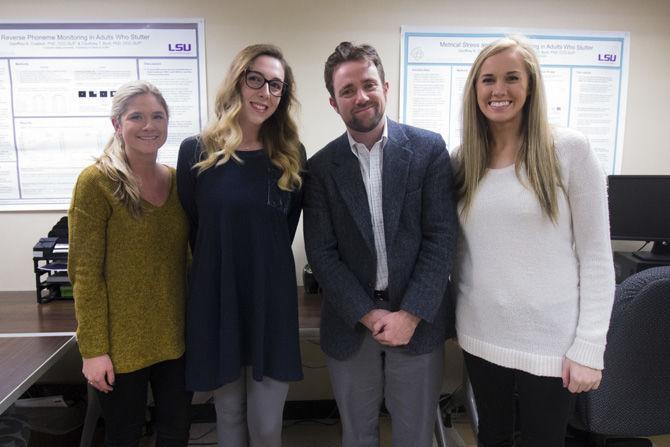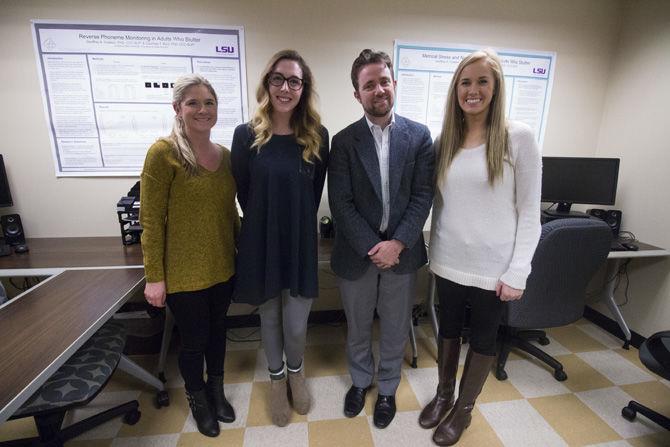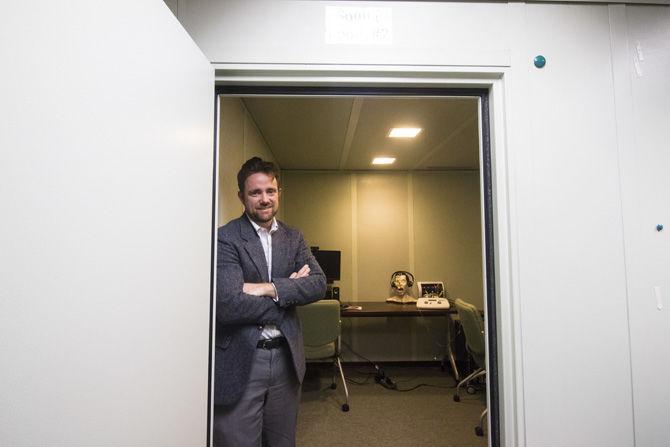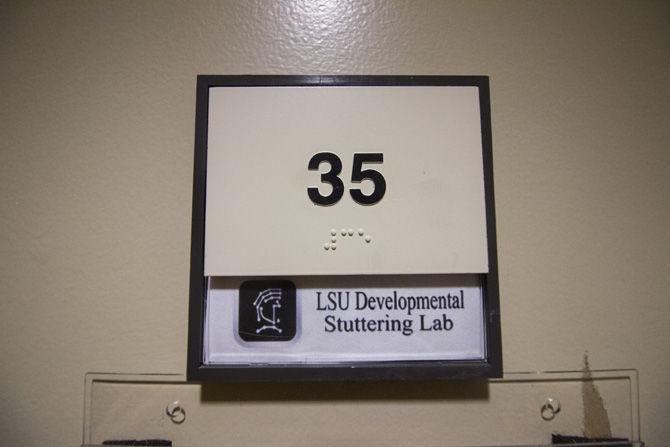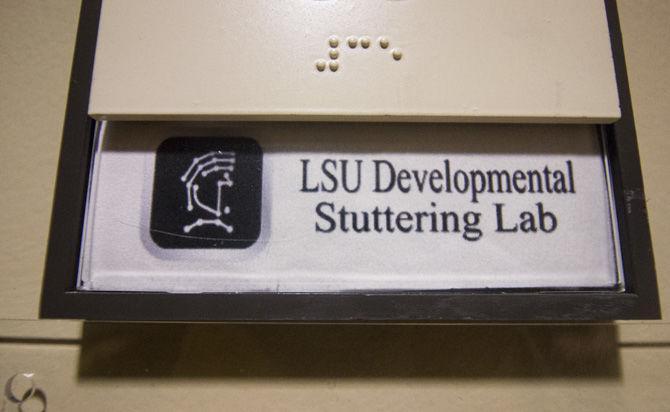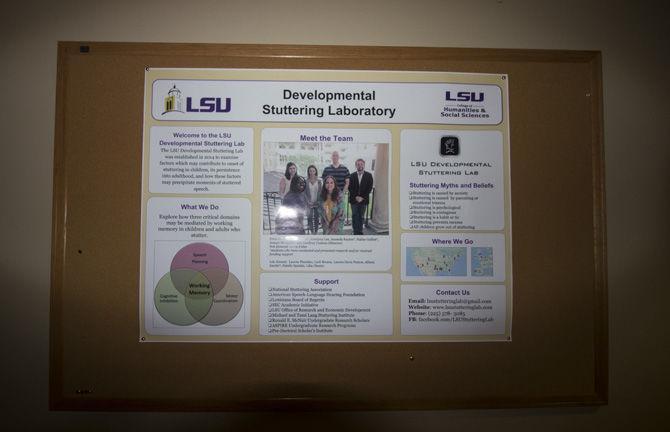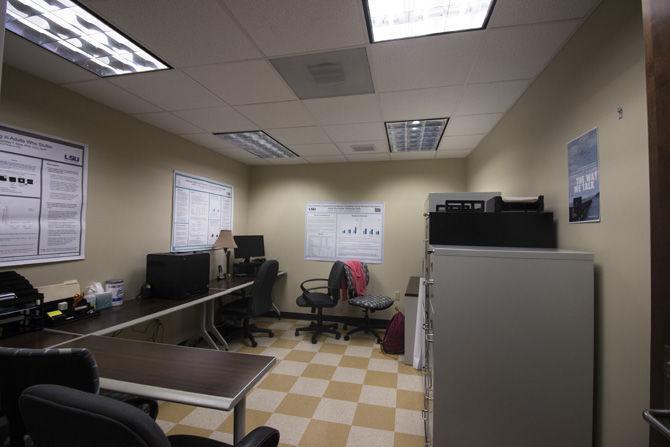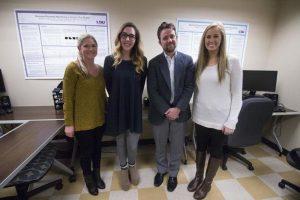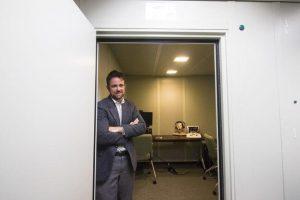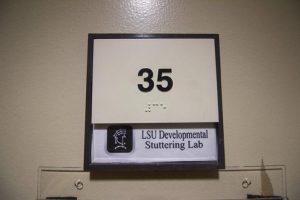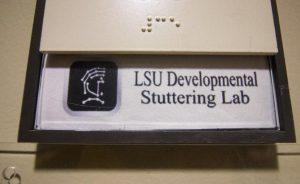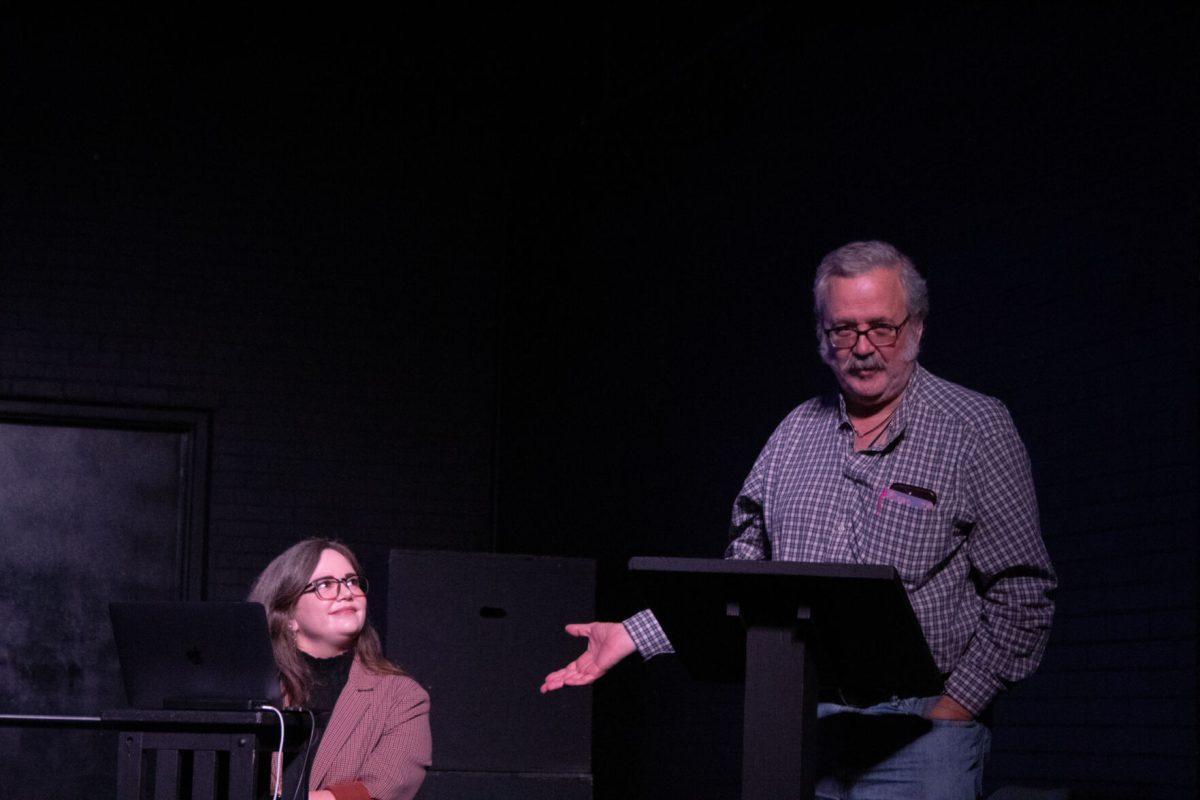The LSU Stuttering Lab started in 2014 with a lofty goal in mind: to find out what causes stuttering. Geoffrey Coalson, lab director and assistant professor in the Department of Communication Sciences and Disorders, has a personal stake in this project.
Coalson has struggled with lifelong struggle with stuttering since he was around 3 years old. He said the problems stuttering causes, like tension, embarrassment and fear about speaking, can have lasting effects on those who stutter.
“One of the unfortunate consequences of stuttering is that you feel like you’re all alone. You feel like you’re the only one doing this, and you’re doing something wrong,” Coalson said. “You start to lose your mind. It takes so much effort to hop around words that people who stutter — they are exhausted. Or they just don’t talk to people because it’s just too much effort.”
Coalson and his staff are addressing this issue by bringing awareness that stuttering is acceptable, and to give stutterers the freedom to stutter. Coalson and his staff also go to different classes and departments within the University to recruit test subjects and to provide resources for those who stutter.
“There’s an oversimplification of stuttering,” Coalson said. “There’s a pop culture knowledge of stuttering that people see in movies and people see in portrayals of media. That [stutterers] are just nervous and if they just try a bit harder, they can correct all that. It’s not that simple.”
While 75 percent of children who stutter grow out of it by age 6, the remainder who retain a stutter can be greatly affected by it, Coalson said. There are around three million adults who have a stutter in the U.S., and more than 70 million worldwide. Stuttering is around three to four times more common in men. The LSU Stuttering Lab is trying to spread statistics like these.
“It’s good to be able to get them the facts, it’s nice to offer reassurance or explain what’s going on,” said Shanley Treleaven, LSU Stuttering Lab manager and a Ph.D. student concentrating in stuttering.
The lab examines some of the more subtle factors involved in stuttering, such as cognitive ability, linguistic processing and differences in motor skills. Their test subjects are all adults volunteering for different exercises.
“A lot of what we do here is nonverbal,” Coalson said. “We look at factors that are more extreme than just speech production. We look at the actual moments of stuttering and then additional processes.”
While the staff examines different factors in stuttering, their mission is more than just research. They are also dedicated to spreading information about stuttering, and reducing misinformation and stigma attached to stuttering.
The Stuttering Lab staffers have also influenced the larger Baton Rouge community. Under Coalson’s direction, the Baton Rouge chapter of the National Stuttering Association, which meets monthly, has grown in size and achieved more visibility, as well as gained a few University students.
Ultimately, the LSU Stuttering Lab wants to find the causes and indicators of stuttering, to be able to more effectively treat stuttering and to implement new methods of therapy for stuttering. While their focus is on stuttering factors as a way to help children, they hope their research will be beneficial to adults suffering from stuttering, as well.
“Maybe it’s being able to talk about stuttering in front of someone, or maybe it’s being able to speak more fluently while giving a speech or whatever their individual need is,” Treleaven said. “We want to be able to help them, and the more research we do, the more we can help adults as well … So we can someday make better therapy techniques for these adults.”
LSU Stuttering Lab aims to erase misconceptions about stuttering
February 14, 2018
LSU communication sciences and disorders senior Mary Claire Fontenot, Ph.D. student Shanley Treleaven, Director of LSU Stuttering Lab Geoffrey A. Coalson and communication sciences and disorders senior Andi Gugliuzza stand inside of their Developmental Stuttering Laboratory in the basement of Hatcher Hall, on Jan. 31, 2018.
More to Discover


